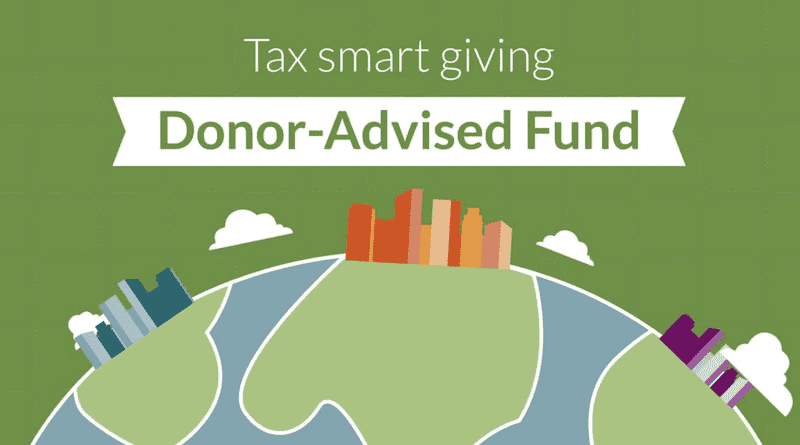Introduction to Donor Advised Funds
Donor-Advised Funds (DAFs) are fast becoming a popular philanthropic vehicle for many wealthy across the globe. DAFs offer an excellent way for donors to make significant charitable contributions over several years. With a Donor-Advised Fund, individuals can contribute cash, securities, and other assets to a charitable fund at a public charity. The donor then advises the public charity on how to distribute the funds to other charitable organizations over time.
DAFs offer a simplified and organized way to manage charitable giving. They provide flexibility, allowing donors to support multiple charities from one account without the administrative responsibilities of managing a private foundation. Donor-Advised Funds also offer tax advantages, making them a highly attractive option for donors who wish to optimize their philanthropic impact and save taxes while doing it.
The concept of Donor Advised Funds is not new. However, in recent years, their popularity has surged due to their numerous benefits and the increasing awareness of these benefits among donors and lower thresholds for managed funds solicited from the general public.
The Growth of Donor Advised Funds
The growth of Donor Advised Funds has been nothing short of phenomenal. According to the National Philanthropic Trust, the total amount of assets in DAFs in the US alone was over $121 billion in 2019, a 300% increase over the last decade. This growth is attributed to several factors, including the tax benefits associated with DAFs, the ease of setting up and managing a DAF, lower investments thresholds and the rising interest in strategic philanthropy.
One key driver of the growth of Donor-Advised Funds is their accessibility. Unlike private foundations, which often require substantial assets and administrative support, DAFs can be opened with relatively modest amounts, sometimes as little as $5,000. This accessibility has made DAFs an attractive option for a wider range of donors, from high-net-worth individuals to middle-income earners.
Another factor contributing to the growth of DAFs is the increasing sophistication of the philanthropic sector. As donors become more strategic in their giving, they are turning to vehicles like DAFs that offer flexibility, efficiency, and impact. Donor-Advised Funds allow donors to take a more proactive approach to their giving, enabling them to support multiple causes and respond to emerging needs.
Donor Advised Funds as an Alternative to Private Foundations
Donor Advised Funds are often promoted as an alternative to private foundations. Private foundations have long been the go-to vehicle for high-net-worth individuals seeking to make a significant philanthropic impact. However, they come with a host of administrative responsibilities and regulatory requirements that can be burdensome for some donors.
In contrast, DAFs offer a simpler and more flexible way to manage charitable giving. Donors can easily establish a DAF, contribute assets, and recommend grants to their chosen charities. The sponsoring organization takes care of the administrative tasks, including due diligence, grant management, and tax reporting.
In addition, Donor Advised Funds offer a higher immediate tax deduction compared to private foundations. Donors can deduct up to 60% of their adjusted gross income for cash contributions and up to 30% for appreciated securities. In comparison, the limits for private foundations are 30% and 20% respectively.
Understanding the Concept of Democratizing Philanthropy
The concept of democratizing philanthropy is key to understanding the appeal of Donor Advised Funds. Traditionally, philanthropy has been the domain of the wealthy. However, DAFs are changing this narrative by making philanthropy accessible to the general public.
Democratizing philanthropy means making giving accessible, inclusive, and meaningful for everyone, regardless of their income level. With Donor-Advised Funds, donors of all income levels can establish a DAF, contribute assets over time, and have a say in how their funds are distributed.
This democratization of philanthropy is reshaping the philanthropic landscape, making giving more dynamic and diverse. It also fosters greater engagement in philanthropy, as more individuals feel empowered to contribute to the causes they care about.
Advisory Privileges in Donor Advised Funds
One of the defining features of Donor Advised Funds is the advisory privileges they offer to donors. When a donor contributes to a DAF, they retain the right to advise the sponsoring organization on how the funds should be distributed. This means they can recommend which charities should receive grants and when these grants should be made.
Deferred Taxation: A Major Benefit of Donor Advised Funds
Deferred taxation is one of the primary benefits of Donor Advised Funds. When a donor contributes assets to a DAF, they receive an immediate tax deduction. However, they can choose to defer the distribution of these funds to their charities of choice. This deferral allows donors to time their charitable giving to align with their financial and philanthropic goals. They can contribute assets when it's most tax-efficient for them and recommend grants when they believe their support will have the greatest impact. Deferred taxation also allows donors to grow their charitable funds tax-free. Any investment growth in the DAF is not subject to tax, enabling donors to maximize their philanthropic impact.
What are Charitable Investment Accounts?
Charitable Investment Accounts are another name for Donor Advised Funds. They function like a personal charitable savings account. Donors contribute to the account, receive an immediate tax deduction, and then recommend grants to charities over time. These accounts offer a flexible and efficient way to manage charitable giving. Donors can contribute a variety of assets, including cash, stocks, real estate, and more. They can also invest their contributions, allowing them to grow their charitable funds tax-free.
Charitable Investment Accounts also offer donors the opportunity to involve their family in their philanthropy. Donors can name successor advisors, allowing them to pass on their philanthropic values to the next generation.
National Donor-Advised-Fund Organizations: What You Need to Know
National Donor-Advised-Fund organizations are public charities that sponsor Donor Advised Funds. These organizations handle the administrative tasks associated with managing a DAF, including due diligence, grant management, and tax reporting.
There are numerous National Donor-Advised-Fund organizations, each with its own policies and procedures. Some organizations focus on supporting specific causes, while others offer a broad range of philanthropic services.
When choosing a National Donor-Advised-Fund organization, donors should consider factors such as the organization's reputation, its investment options, and its grantmaking policies. They should also consider the level of support and advice the organization offers to donors.
Advantages and Disadvantages of Donor-Advised Funds
Like any philanthropic vehicle, Donor Advised Funds have both advantages and disadvantages. On the plus side, DAFs offer simplicity, flexibility, and tax benefits. They allow donors to streamline their giving, support multiple charities, and maximize their tax deductions.
DAFs also offer donors the opportunity to grow their charitable funds tax-free. This feature can significantly increase the impact of their giving over time. Moreover, DAFs enable donors to involve their family in their philanthropy, fostering a tradition of giving.
On the downside, Donor Advised Funds do not offer the same level of control as private foundations. While donors have advisory privileges, the final decision on grant distributions rests with the sponsoring organization. Also, DAFs have been criticized for allowing donors to delay their giving. While donors receive an immediate tax deduction, they can defer the distribution of their funds indefinitely, which defeats the point of giving to charitable organizations that require funding for their programs and initiatives.
What is the Charitable Limit for a Donor-Advised Fund?
The charitable limit for a Donor-Advised Fund refers to the maximum amount that a donor can contribute to a DAF and still receive a tax deduction. The IRS has set these limits based on a percentage of the donor's adjusted gross income (AGI).
For cash contributions, donors can deduct up to 60% of their AGI. For contributions of appreciated securities and other non-cash assets, the limit is 30% of AGI. Any contributions that exceed these limits can be carried forward and deducted in future years, up to five years. These generous limits make Donor-Advised Funds a highly attractive option for donors who wish to make substantial charitable contributions. However, it's important for donors to consult with a tax advisor to fully understand the tax implications of their giving.



.png)
.png)
.png)

.png)